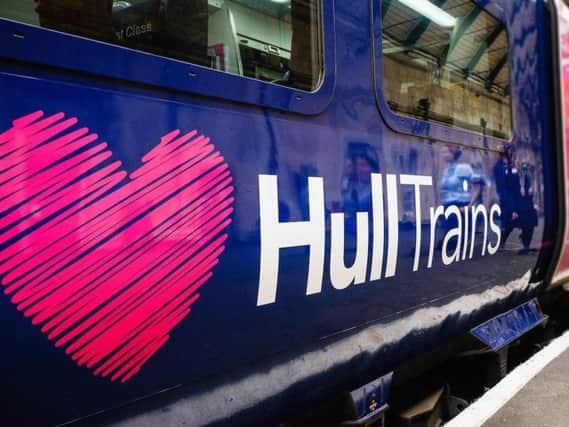David Behrens: Rail's going nowhere with unions, bosses and passengers at odds


The Union of Rail, Maritime and Transport Workers, which objects to its members losing their exclusive right to open and close the carriage doors, has been staging one-day strikes on Northern Rail since March 13, last year. Commuters in other areas have been suffering even longer.
It’s difficult to examine the rights and wrongs of the arguments because there are far more wrongs than rights. But the main point to consider is this: the RMT has been offered unprecedented assurances of jobs and pay reviews until 2025, with the Government guaranteeing jobs beyond that if it calls off the strikes.
Advertisement
Hide AdAdvertisement
Hide AdHas your industry guaranteed your job for at least the next seven years? No? Nor mine.
It is mendacious for the RMT to claim, as it does, that the dispute is about safety. Really it’s about its unwillingness to loosen its industrial leverage. It wants its members’ fingers on those door buttons so it can continue to throw its weight around and threaten action that will disrupt services. If it is drivers who are to press the buttons, those services will no longer be dependent on the guards turning up.
In truth, guards are an anachronism. The London Underground manages without them. And driver-controlled trains have been used in other parts of the country for the last 30 years.
So this should have been an easy nut for the industry to crack. The fact that it has gone into a second year, with two more strikes called for the week after next, says much about the ineffectuality of those who run it, both in management and in government.
Advertisement
Hide AdAdvertisement
Hide AdIt is far from the only example of inflexibility. Services on Hull Trains ran hardly at all between Doncaster and London last week because the company has only four trains and two of them were taken out by the weather.
Four trains? I’ve had Hornby layouts with more.
Yet Hull Trains is owned by the First Group, which has plenty of rolling stock. It runs the Great Western, TransPennine and South Western franchises and the Heathrow Connect service. Could it not have sprung a train from elsewhere on its network to keep Hull moving?
Whether it could or not isn’t the point. It didn’t because it didn’t have to. Train companies seldom if ever act on initiative; they fulfil their ill-conceived contracts with the Department for Transport to the letter, if we’re lucky, and they don’t go a comma further.
Relations between the industry factions are oiled by disingenuity. Northern, for instance, acts faster than Teflon whenever there is a sticky problem for which it can blame the Government, Network Rail or its passengers. But it is perfectly happy to take credit for initiatives that the Government has imposed upon it, such as the commissioning of new trains with levels of comfort that Southerners have enjoyed for years.
Advertisement
Hide AdAdvertisement
Hide AdAnd it took the industry regulator to compel all the train companies last week to rewrite their misleading terms and conditions which denied passengers compensation when delays left them out of pocket.
It’s not just managers and civil servants who are ineffectual; the RMT also wields far less clout than it thinks. Its strikes are having progressively less effect, and in the South West, where there is also a dispute over guards, there have been reports of its members simply ignoring orders to down tools, and of being bullied for their defiance.
Up here, meanwhile, an air of mutual distrust exists between Northern Rail and its passengers, fuelled by the company’s barely-even-disguised conviction that they are guilty of fare evasion until proven innocent.
Can we really expect an industry as dysfunctional as this to deliver the improvements to the two stations in Bradford – actually they’re currently little more than kiosks – proposed this week as part of the “Northern Powerhouse Rail” initiative?
Advertisement
Hide AdAdvertisement
Hide AdThere is no quick fix for the railways; there are too many weak links. But a first step, as in any business, is to isolate problems so that solutions may be identified. The RMT clearly belongs in the first category; it is up to Chris Grayling’s Department for Transport to knock heads together and demonstrate that it deserves to be in the second.